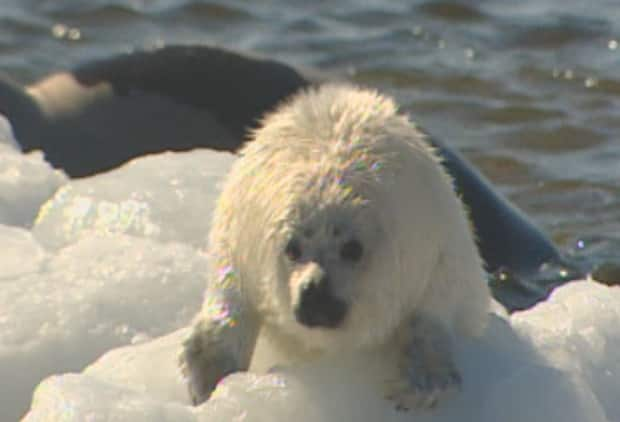Seafood industry urges 'extreme caution' on controlling seals to avoid consumer backlash

Canada's seafood industry is urging Ottawa to use "extreme caution" when considering measures to control the growing seal population, warning they could jeopardize market access and acceptance of Canadian seafood.
But according to Conservative fisheries critic Clifford Small — a member of parliament from Newfoundland and Labrador — those concerns are overblown.
The issue emerged at a parliamentary committee examining the impact of the huge seal herds on fish stocks.
There have been widespread claims seals are to blame for the slow recovery of some groundfish species and calls for a seal cull.
"It is immensely important that as the government considers potential steps moving forward, its actions do not disrupt either the market access or acceptance of Canadian fish and seafood products, both internationally and domestically," said Paul Lansbergen, president of the Fisheries Council of Canada.
The council represents large harvesting and processing companies in wild-capture fisheries.

"I cannot stress this enough. This could have serious impacts on coastal communities that depend on our sector," Lansbergen told MPs Thursday.
Lansbergen said both the U.S. and the European Union have strict rules regarding the harming of marine mammals during fishing.
A violation could block market access. In 2021 Canadian seafood exports to America were valued at $6 billion.
The National Atmospheric and Oceanic Administration is currently examining Canadian fishery practices to ensure protections in place are comparable to those in the U.S., as required under the Marine Mammal Protection Act.
Landsergen told MPs there is another potential source of blowback.
"In terms of market acceptance, some importers and domestic buyers do not want to be linked with companies and or countries associated with the sealing industry, so there must be extreme caution by the government. So as to not jeopardize existing customers for Canadian seafood companies of our efficiency for products," he said.
The Conservative's Small is skeptical.
Intent to protect marine mammals
He says whaling nations have not been denied market access, pointing to Norway, Iceland and Japan — all members of the North Atlantic Fisheries Organization (NAFO).
"I don't think that ... there's been any sanctioning of these countries for hunting whales, seals, puffins, whatever," Small said.
"How real can the threat be of sanctions against our seafood when other NAFO countries are hunting whales and they're not being sanctioned?"

"One important distinction would be the intent to protect marine mammals while you are harvesting other fish and seafood," Lansbergen responded.
"So if we can clearly articulate that as we harvest fish and seafood, we're not harming other marine mammals in the process," that would still meet the rules of the Marine Mammal Protection Act, he said.
During the hearing, Fisheries and Oceans Canada (DFO) officials acknowledged that seals eat large amounts of fish, but added it is working to fill gaps about their impact on fish species.
Seal population and demise of codfish
DFO linked the demise of codfish in the southern Gulf of St. Lawrence in 2019 to a rapidly increasing seal population.
The warning was contained in a stock assessment of Atlantic cod.
In a statement to CBC, DFO pointed to a recent seal summit which brought together Indigenous peoples, scientists and industry "to explore the ethical harvest of seals that utilizes the full animal and additional opportunities for Canadian seal products."
"Decisions on the health and well-being of mammals must be based on science not only in order to preserve the health of our ecosystems, but also to remain compliant with international trade policy provisions. As such, it's critical that we continue to make responsible management decisions using the best available science to protect Canada's fisheries and the livelihoods of fish harvesters," DFO Minister Joyce Murray's office said.
MORE TOP STORIES


